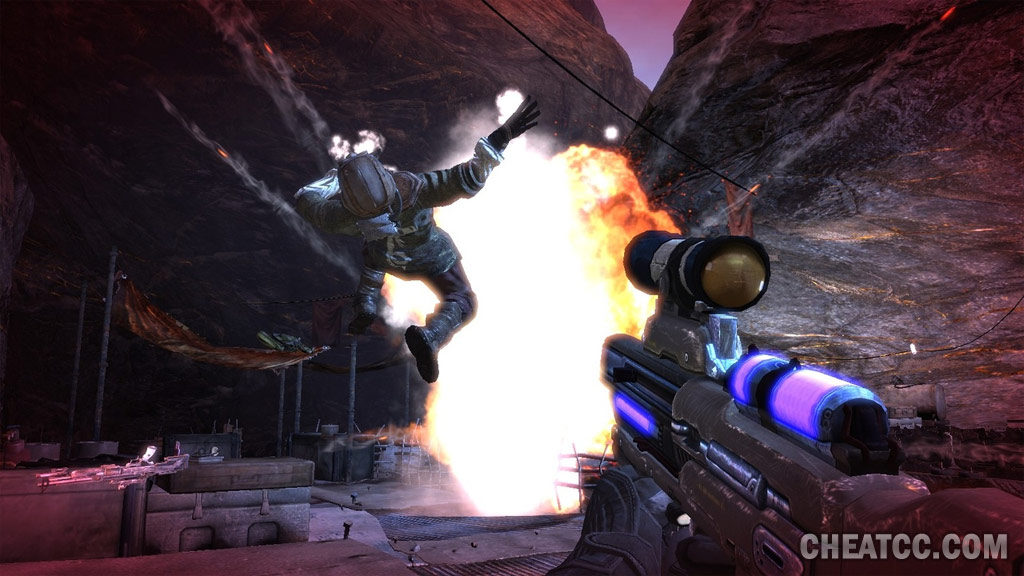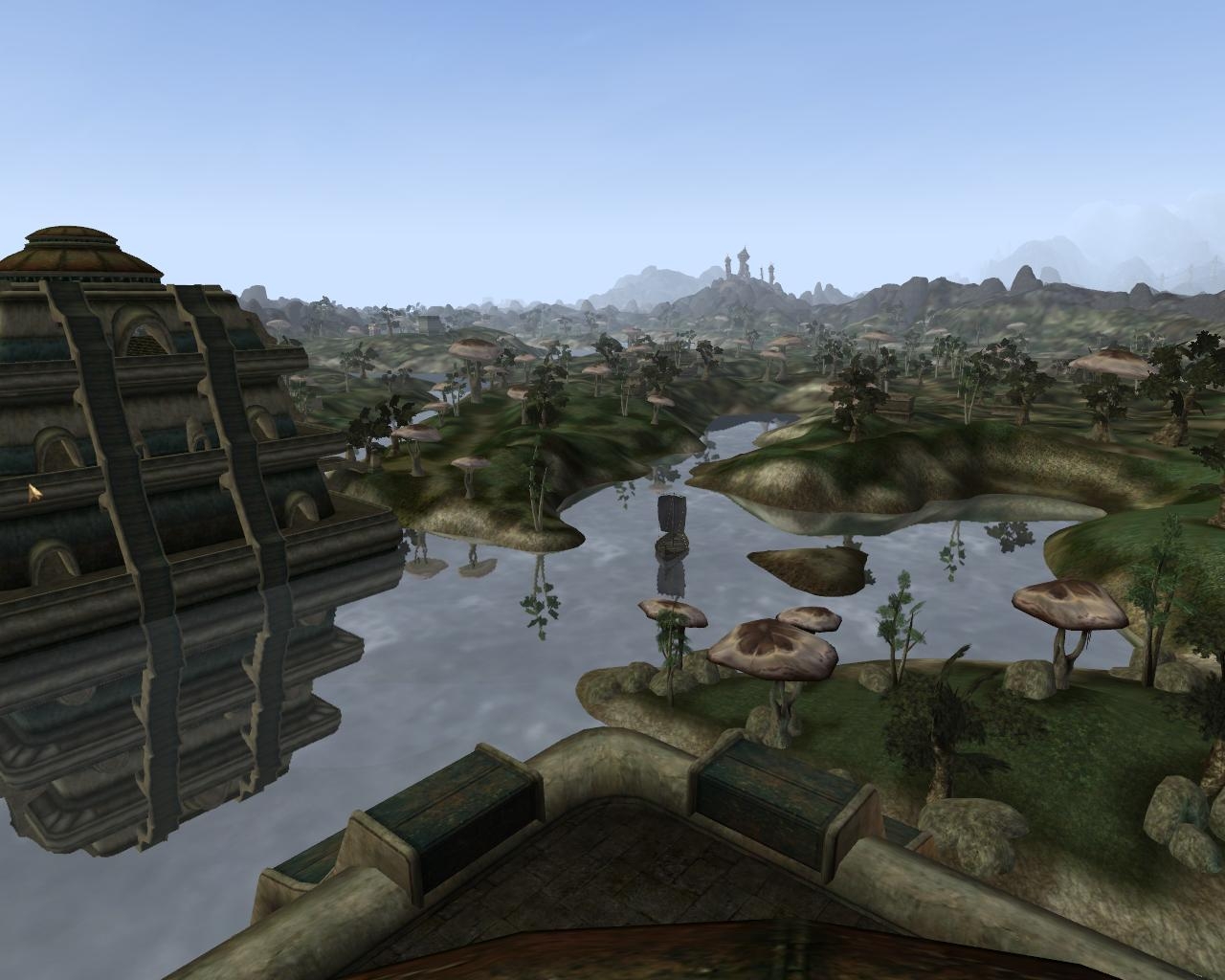Skyrim is the newest release from Bethseda's long running R.P.G. series 'The Elder Scrolls' following the smash hits of Morrowind and Oblivion, both previous instalments winning countless Game Of The Year and Best In Show awards.
Skyrim is set two hundred years after the events of Oblivion and is set in Skyrim, home of the Nords and one of the northern provinces of Tamriel. The land is being torn apart by civil war and there is the return of a powerful enemy...
The Map...

The game seems promising right from the world go, it's got the vast sized map that both prequels boasted. Apparently it is around 16 square miles (41 square kilometers) in area. Within Skyrim lie five cities, larger than Cyrodiil's cities, as well as smaller townships and expanses of wilderness. But unlike Oblivion, which got heavily slated for it repetitive terrain and layout, Skyrim is set to feature many different terrain types. There will be forests and mountains and many other beautiful scenes for the eye to see. Skyrim is the most rugged region in the continent; apparently not only containing five of the highest peaks in the Tamriel world, Skyrim also is very snowy, in the western reaches are there some measure of flat land, where most of the population resides. The rest of Skyrim is vertical; mountains, cliffs, and deep valleys.
Dragons are frequently encountered when exploring the wilderness. There are also over 150 dungeons scattered across Skyrim, and when the player enters a dungeon for the first time, the monsters within lock to the player's level permanently, even if visited later at a higher level. Fast-travelling is a returning feature, allowing the player to instantly travel to any marked location that has been previously visited.
The Dragons...

The legendary dragons have a particular influence on gameplay and story and are a challenging opponent for the player. Dragons are not scripted, as they can show up anytime, anywhere and are capable of attacking anything. Different races of dragons are encountered throughout Skyrim, either alone or in small groups. They can speak directly to the player character in the world's native language of Draconic. Dragons can attack cities and towns at random, merrily ravaging towns without warning; often, dragons nose-dive to the ground, march through city streets and breathe fire, which engulfs and causes significant damage to city structures. Saying that though, not every dragon will be hostile, and some can be communicated with.
Through a course of events, the player character learns that he/she is "Dragonborn." Because of this, the player is granted the ability to use dragon shouts. These are powerful skills gained by slaying dragons, examples of which include teleportation, slowing down time, and summoning a dragon to aid the player. Dragon shouts are described as battle cries spoken in the native language of the dragons. There are over twenty different dragon shouts to be gained throughout the game, and they become more effective as the player absorbs the souls of slain dragons.
There are also creatures such as Giants, mammoths, sabre-toothed tigers and werewolves that are encountered throughout the game and can be slain.
The Gameplay...

Each city or town has its own economy, which the player can either stimulate by completing jobs such as farming and mining, or harm by sabotaging industrial buildings. The player can train in eighteen different skills, and the player character is leveled up by raising skills. The c.l.a.s.s. system traditional in role-playing games, which had been present in Oblivion, is removed to allow the player's to develop naturally. Perks are skill-specific abilities, organized in a system of branching groups called "skill trees." The player can choose from one of 280 perks each time their character is leveled until the player character has leveled fifty times.
The on-screen heads-up display only appears when the player's health, stamina, or magicka are being depleted. Items and equipment layouts can be saved to a quick-access menu, and the pause-screen inventory menu is presented in a compass overlay; while in the inventory, the player can rotate and zoom in on acquired items.
Weapons can be created by the player at a forge, and are assigned to each hand individually, allowing for dual-wielding. At the cost of stamina, the player can sprint and jump. Shields can be used with a bashing attack, and timing is required for blocking with a shield. Blunt, bladed, hacking and stabbing weapons each have specific advantages and roles; as an example, the player is granted the ability to perform finishing moves. There are over eighty-five spell types, which can be used in ranged and close combat forms. Spell types have specific qualities; a frost spell slows and drains stamina, while a fire spell causes prolonged damage through burning, and may also ignite the environment. Players can equip one spell per hand and will be able to charge up spells before casting for greater power. When practicing archery, arrows take longer to draw back than in previous Elder Scrolls games, but do greater damage. Because of this, arrows are expensive and considered rarities.
Skyrim makes use of the Radiant A.I. artifical intelligence system created for Oblivion, which has been updated to allow NPCs to "do what they want under extra parameters". The updated system allows for greater interaction between NPCs and their environments; NPCs can perform tasks such as farming, milling and mining in the game world. NPCs can interact with the player character through conversation, and can request favors and training for the player, or challenge the player character to a duel. Events such as dueling are randomly-generated encounters, taking influence from Bethesda's previous game Fallout 3. Skyrim introduces the Radiant Story system, which governs quests and how they function. Side-quests are dynamically altered based on the player's actions, and are tailored to the player's abilities and progress within the game. As an example, the player might be sent off to a dungeon that has not been previously explored, and face enemies that are defeated most effectively with the player's preferred combat techniques. NPCs move around, peform tasks and make body gestures while conversing with the player. Children are present in the game as well. The NPCs also react to items dropped by the player, if an object is dropped the NPC might return it to you, steal it or fight with another NPC as to whom gets to keep it.
Skyrim is released on 11.11.11.

























Log in to comment